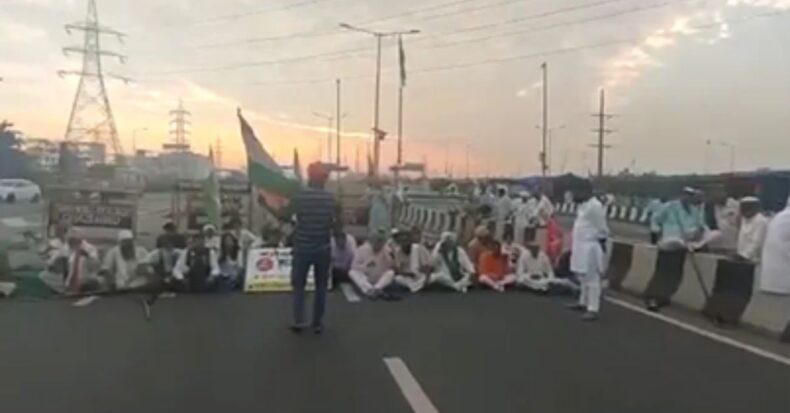The Supreme Court has requested the farmer unions named as parties to react to the problem within three weeks and set a hearing date for December 7.
Farmers protesting against the three farm laws at Delhi’s borders have the right to protest, but they cannot block roads forever, the Supreme Court ruled today. Farmers’ unions were given three weeks to respond.
Even while a legal challenge is pending, a bench led by Justice SK Kaul stated that it is not against the right to protest but that a solution must be found eventually.
“Farmers have the right to demonstrate, but they cannot block highways indefinitely. You have the right to agitate in any way you choose, but you shouldn’t block roads like this. People have the right to travel on roadways, but they cannot be closed off “Justice MM Sundresh was also on the bench, according to the statement.
What is the Farm Bill 2020 about?
The Indian agriculture acts of 2020, often known as the Farm Bills, are a set of three acts introduced by India’s Parliament in September 2020. The Lok Sabha adopted the bills on September 17, 2020, and the Rajya Sabha on September 20, 2020. On September 27, 2020, India’s President, Ram Nath Kovind, granted his approval. They sparked anti-new-acts demonstrations, which gathered traction in September 2020.
The Supreme Court halted the farm rules’ implementation on January 12, 2021, and created a committee to investigate farmer complaints about agricultural legislation.
The central government issued several model farming acted in 2017. However, the Standing Committee on Agriculture (2018–19) stated that several model legislations reforms had not been implemented by the states. The Committee discovered, in particular, that regulations governing Indian agricultural markets (such as those governing agrarian produce market committees, or APMCs) were not being applied fairly and honestly and that they were not performing their intended purpose.
Unfair commissions, market fees, and monopoly of groups were deemed to be harming the agriculture industry, lowering competition and (as a result) participation.
In July 2019, a committee of seven Chief Ministers was formed to discuss implementation. The report of the Committee has yet to be submitted. In the first week of June 2020, the centre issued three ordinances.
What are the Three Farm Laws?
The Farmers’ Produce Trading and Commerce (Promotion and Facilitation) Act of 2020:
Broadens the definition of farmers’ produce trade areas from a few designated areas to “any place of production, collecting, or aggregation.” Enables for electronic trading and e-commerce of farmers’ produce on a set schedule. For the trade of farmers’ produce done in an ‘outside trade area,’ state governments are prohibited from levying any market tax, cess, or levy on farmers, merchants, or electronic trading platforms.
Farmers (Empowerment and Protection):
Agreement on Price Assurance and Farm Services Act, 2020 establishes a legal framework that allows farmers to enter into pre-arranged contracts with purchasers, including pricing. A process for resolving disputes
The Essential Commodities (Amendment) Act of 2020:
It removes foodstuffs like cereals, pulses, potatoes, onions, edible oilseeds, and oils from the list of essential commodities, removing stockholding limits on agricultural items produced by Horticulture techniques except in “extraordinary circumstances.” It also requires that any stock limit on agricultural produce be imposed only if steep price increases.
After the events in Lakhimpur Kheri, when eight people died. “Protests cannot take place in this manner,” Attorney General KK Venugopal said, adding, “My lordship, please say that where laws are already being addressed, protests cannot take place.” It leads to unfavourable outcomes.”
“When such occurrences occur, nobody accepts responsibility,” the Supreme Court said. There has been a loss of life and property, and nobody is willing to accept responsibility.”
The Supreme Court ordered the farmer unions, who have been named as parties in the case, to answer the problem within three weeks and set a hearing date for December 7.
The Supreme Court heard a petition brought by Monica Agarwal, a Noida resident, who complained of delays in her daily travel due to the road closure caused by the ongoing farmers’ demonstrations.
Farmers have been camped out near Delhi’s borders, demanding the repeal of the three farm laws.












